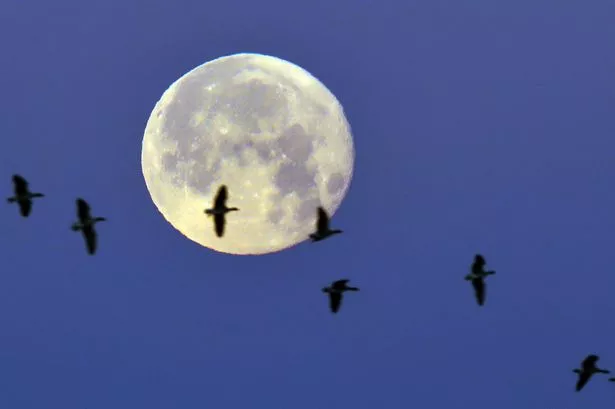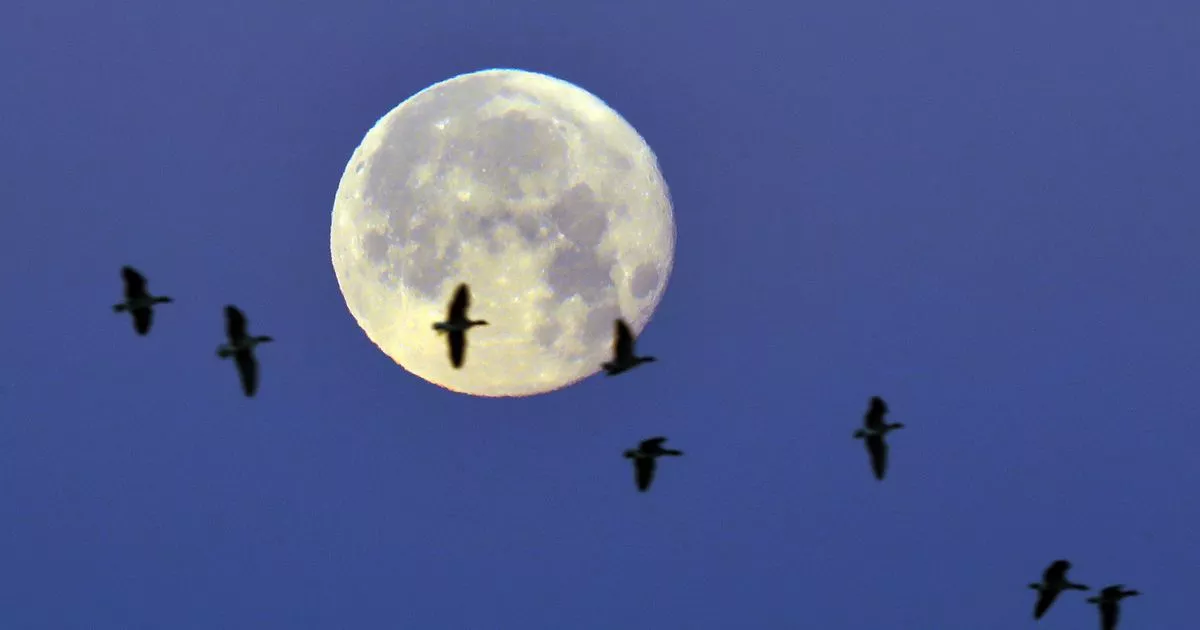The eighth full moon of the year will illuminate the evening sky A full moon over the UK(Image: PA)
A full moon over the UK(Image: PA)
The eighth full moon of the year will rise today as stargazers are given the opportunity to gaze at another spectacle in the night sky. The full moon is the “Sturgeon Moon” and it comes after last month’s Buck Moon.
A full moon is as close as human’s come to seeing the Sun’s illumination of the entire day side of the Moon. The Moon is opposite the Sun, as viewed from Earth, revealing the Moon’s dayside. A full moon rises around sunset and sets around sunrise.
The full moon will appear at 8.55am across the UK, North American fishing tribes called August’s full moon the sturgeon moon since the species appeared in number during this month.
The best time to see the full moon rise is at around 9pm on August 9, depending on where you are in the UK. The Sturgeon Moon marks the beginning of a lunar meeting with the Solar System planets, the Moon tracking eastwards across the sky will encounter Saturn, Jupiter, Venus and Mercury.
The Sturgeon Moon is located in the constellation Aquarius, and won’t rise very high above the horizon. That means there’ll be a chance to observe a phenomenon known as the Moon illusion – the celestial body appears bigger.
Astronomers often avoid observing the sky during a full moon because its brightness washes out fainter celestial objects. However, NASA has shared other stargazing highlights to look out for this month.
The two brightest planets, Venus and Jupiter, have a close meetup over several days, appearing closest over two days on August 11 and 12, at just a degree apart.
The space agency has described this as the “real highlight of August”. The pair begin the month farther apart but quickly approach each other in the sky.
Across August 12 and 13, Perseids meteor shower peaks. The annual meteor shower will be hampered by an 84%-full Moon on the peak night. A few bright meteors may still be seen in the pre-dawn hours, but viewing conditions are not ideal this year.
August’s Sturgeon Moon will be followed by the Corn Moon on Sunday, September 7. Other full moons that follow include Hunter’s Moon and Beaver Moon.

